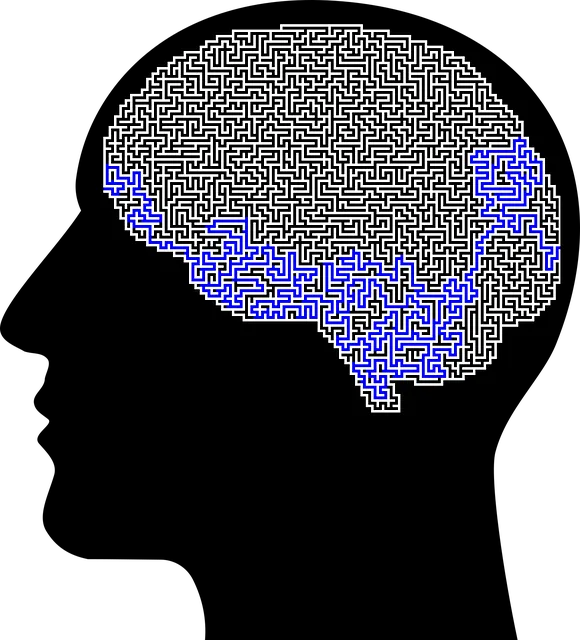Resilience building exercises (RFM) at Kaiser Lone Tree empower individuals to navigate life's challenges with enhanced emotional well-being. These techniques foster mental flexibility, resilience, and control over thoughts, aiding in managing anxiety, stress, and other mental health concerns. Kaiser Lone Tree offers accessible counseling, therapy, and support groups led by experts, addressing stigma through open conversations about mental health. Their user-friendly systems simplify scheduling, including online resources and remote counseling. By incorporating RFM exercises into daily life, individuals can build resilience, manage stress, and cultivate a positive mindset to overcome adversity. Measuring success involves client feedback, symptom improvements, and tracking help-seeking behaviors post-program, ensuring continuous improvement in mental health services through Kaiser Lone Tree.
“Uncovering the Power of RFM (Resilience, Flexibility, and Mental Fortitude) in Enhancing Well-being: A Comprehensive Guide. This article explores an innovative approach to mental health support through Kaiser Lone Tree, offering practical strategies for building resilience. We delve into how individuals can access these services, provide solutions for common challenges, and offer actionable tips on integrating resilience exercises into daily routines. Additionally, we discuss measurement techniques to assess success and foster continuous improvement in mental health journeys.”
- Understanding RFM and Resilience Building Exercises
- Kaiser Lone Tree: A Hub for Mental Health Services
- Accessing Services: Challenges and Solutions
- Incorporating Resilience Exercises into Daily Life
- Measuring Success and Continuous Improvement
Understanding RFM and Resilience Building Exercises

Resilience building exercises, also known as RFM (Recovery, Flexibility, and Mastery) techniques, are designed to help individuals navigate life’s challenges with greater ease and emotional well-being. This approach focuses on fostering mental flexibility, resilience, and a sense of control over one’s thoughts and emotions, especially in the face of stress or adversity. By learning these skills, people can enhance their ability to cope with various life situations, including anxiety and stress, effectively managing their mental health.
For those seeking support for their mental health concerns, such as anxiety relief or stress reduction methods, Kaiser Lone Tree offers valuable resources. Their services aim to provide accessible and comprehensive care, addressing not only the symptoms but also the underlying causes of mental illness. Through various therapeutic interventions, including RFM exercises, individuals can participate in stigma reduction efforts, encouraging open conversations about mental health and promoting a healthier, more supportive community.
Kaiser Lone Tree: A Hub for Mental Health Services

Kaiser Lone Tree stands as a beacon of hope and support for individuals seeking mental health services. This healthcare hub offers a comprehensive range of resources tailored to address various aspects of mental well-being. Here, patients can access professional counseling, therapy sessions, and support groups led by experienced mental health specialists. The facility’s design encourages a sense of calm and privacy, creating an environment conducive to healing and recovery.
For those wondering how to get mental health services through Kaiser Lone Tree, the process is designed to be accessible and non-intimidating. Patients can schedule appointments online or over the phone, with a focus on timely interventions and personalized care. The center’s commitment to Mental Health Policy Analysis and Advocacy ensures that its services align with current best practices, while Burnout Prevention Strategies for Healthcare Providers are integral to maintaining a supportive and sustainable work environment for staff. Effective Communication Strategies further enhance patient experiences by fostering open dialogue and ensuring every individual feels heard and understood.
Accessing Services: Challenges and Solutions

Accessing mental health services can be a significant step toward building resilience and improving overall well-being. For those using Kaiser Lone Tree, there are several challenges that individuals might face when seeking support. One common hurdle is understanding the available resources and how to navigate the system effectively. Many people may feel overwhelmed or unsure about what types of services are offered, especially with various treatment options and therapies. To overcome this, Kaiser Lone Tree provides comprehensive online resources and information sessions, making it easier for clients to learn about different support systems tailored to their needs, including Stress Reduction Methods and Compassion Cultivation Practices.
Additionally, scheduling appointments can be a challenge due to busy lives and personal constraints. To address this issue, the healthcare provider offers flexible appointment slots and remote counseling options, ensuring accessibility. Encouraging self-initiative in seeking help is another vital aspect. By promoting awareness about available services and simplifying access, Kaiser Lone Tree aims to reduce barriers, making it easier for individuals to take that first step towards Self-Esteem Improvement and fostering a resilient mindset.
Incorporating Resilience Exercises into Daily Life

Incorporating resilience exercises into daily life is a powerful way to enhance mental well-being and navigate challenges with greater ease. The RFM (Resilience, Flexibility, and Mindfulness) framework offers a practical approach to building resilience, enabling individuals to develop a toolkit of strategies for stress management. One effective method is incorporating mindfulness practices such as meditation or deep breathing into daily routines, which can help calm the mind and reduce anxiety.
By integrating these exercises seamlessly into everyday activities, whether it’s during morning commutes, lunch breaks, or evenings at home, individuals can foster a sense of control and adaptability. Additionally, engaging in social skills training and seeking support from healthcare providers, like those available through Kaiser Lone Tree, can further enhance resilience by promoting cultural competency and access to mental health services. Embracing Mind Over Matter principles allows people to cultivate a positive mindset, strengthening their ability to overcome obstacles and thrive in the face of adversity.
Measuring Success and Continuous Improvement

Measuring success is a vital step in evaluating the effectiveness of RFM and resilience-building exercises within mental health services provided by Kaiser Lone Tree. By establishing clear metrics, the program can assess its impact on clients’ well-being and mental health professionals’ practice. This involves collecting feedback from participants to understand their experiences, improvements in symptoms, and overall satisfaction with the program. Additionally, tracking the number of referrals to mental health services post-program can indicate a positive shift in access, highlighting how RFM exercises encourage help-seeking behaviors.
Continuous improvement is fostered through regular analysis of these data points. Identifying areas where the program excels and aspects that need refinement allows for adjustments to communication strategies and exercise content. For instance, if clients consistently express challenges in implementing positive thinking techniques, the program can enhance its teaching methods or provide additional resources tailored to this need. Similarly, risk management planning for mental health professionals becomes more effective as they gain insights into real-world applications during RFM sessions, leading to better preparation for potential on-the-ground scenarios.
Resilience is a key component in navigating life’s challenges, and Kaiser Lone Tree’s integration of RFM and resilience-building exercises provides an innovative approach to enhancing mental well-being. By understanding these techniques, individuals can access valuable tools to improve their resilience and overall mental health. Through addressing the challenges of accessing services, such as those offered by Kaiser Lone Tree, people can discover how to get mental health support and incorporate daily resilience practices into their lives. Continuous improvement is possible through measuring success and adapting these exercises to suit individual needs, ensuring a more resilient future.






